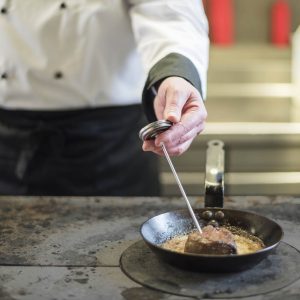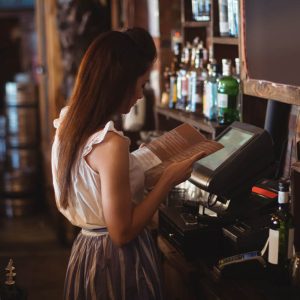Personal Licence Holders

Personal Licence Holders
HABC Level 2 Award for Personal Licence Holders
Any business licensed to sell alcohol, including small pubs, retailers, large night clubs, cafés, restaurants, hotels and sports facilities, is required by law to have at least one personal licence holder. To become a personal licence holder, an individual should obtain a regulated personal licence holders qualification.
£95.00
Is this course right for me?
This one day online course is aimed at individuals working in, or preparing to work in, any industry that involves the retail sale of alcohol. Anyone wishing to sell or authorise the sale of alcohol by retail on licensed premises must hold a personal licence. Licensed premises can have more than one personal licence holder.
Please note the course is online and can be done at your leisure, but you will need to come into the College to sit the exam.
On successful completion of this course you will need to register with your local council for your licence.
Any questions?
If you have any questions about this course, please do not hesitate to contact our Central team, during working hours, on 01437 753 320 or anytime via email central@pembrokeshire.ac.uk
- No formal entry requirements
- Each application is considered on individual merit
- The learner must be over the age of 18
Topics cover the nature, purpose and period of validity of a personal licence, the application process and legal duties when applying for a personal licence, the legal duties of a personal licence holder, the roles, responsibilities and functions of licensing authorities, the nature and strength of alcohol and the effect on the body and the law in relation to premises licences.
Topics studied will include:
- Understanding the application process for a personal licence
- Your legal duties as a personal licence holder
- The roles, responsibilities and functions of licensing authorities
- The licensing objectives and why they’re so important
- How the nature and strength of alcohol can affect your customers
- The law relating to protecting children on a licensed premises
- The powers held by the police and other authorities
Learners have the option to complete course assessment/assignments or elements of the course through the medium of Welsh or bilingually. Visit our Welsh Language in the College page to find out what else is available to you.
- Written examination
Following completion of this course you might want to try another one of our work-based courses.
- Textbooks - you will be told about any specific items before you start the course, most textbooks are available to loan from the college library or online libraries
Any costs above are approximate and may change. For information on refunds and course cancellations please see the fee policy.
- No additional costs
- There are registration/subscription fees for this qualification
- You may be eligible for funding - please contact central@pembrokeshire.ac.uk
What are the entry requirements?
- No formal entry requirements
- Each application is considered on individual merit
- The learner must be over the age of 18
What will I learn?
Topics cover the nature, purpose and period of validity of a personal licence, the application process and legal duties when applying for a personal licence, the legal duties of a personal licence holder, the roles, responsibilities and functions of licensing authorities, the nature and strength of alcohol and the effect on the body and the law in relation to premises licences.
Topics studied will include:
- Understanding the application process for a personal licence
- Your legal duties as a personal licence holder
- The roles, responsibilities and functions of licensing authorities
- The licensing objectives and why they’re so important
- How the nature and strength of alcohol can affect your customers
- The law relating to protecting children on a licensed premises
- The powers held by the police and other authorities
Can I do this course in Welsh?
Learners have the option to complete course assessment/assignments or elements of the course through the medium of Welsh or bilingually. Visit our Welsh Language in the College page to find out what else is available to you.
How will I be assessed?
- Written examination
What can I do next?
Following completion of this course you might want to try another one of our work-based courses.
Do I need to bring/buy any equipment?
- Textbooks - you will be told about any specific items before you start the course, most textbooks are available to loan from the college library or online libraries
Are there any additional costs?
- No additional costs
- There are registration/subscription fees for this qualification
- You may be eligible for funding - please contact central@pembrokeshire.ac.uk
“I recently finished ‘Food Safety Level 3’ and ‘Personal Licence Holders Level 2’ with Highfield through Pembrokeshire College. I’m 26 and head chef at a restaurant in St Davids. I’d definitely recommend these courses to anyone who works with food and drink. The learning’s online, so you can work on it at your own pace, and it’s really well put together. The information’s clear and concise, with lots of interaction so it’s easy to remember for the multiple choice questions and in-person exam at the end. Best of all it was also fully-funded so didn’t cost a penny! Big up also to the super helpful staff who co-ordinate it so well.” Jon
Additional Information
Additional information
| Level: | |
|---|---|
| Mode: | |
| Start Date: | Online course |
| Duration: | 1 day |




